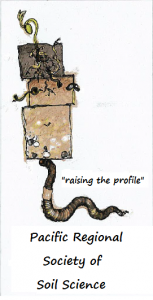The tropics are as beautiful and diverse below-ground as they are above-ground. Learn how to use knowledge about the natural variability in soil properties for the sustainable management of ecosystems and farms.
This free, 7-week, edX course starts May 13, 2019.
Learn more and view the course syllabus here.
Instructors:
Karen Vancampenhout, Professor of Soil Science, KU Leuven University
Stephan Mantel, Head of World Soil Museum – ISRIC World Soil Information
About this course
Soils form the foundation of sustainable development. They grow our food, fiber and fuel, are a habitat for organisms, buffer and purify water and safeguard archaeological legacies. It is therefore of vital importance to understand how soil properties vary across tropical ecosystems and landscapes, and how these properties affect biodiversity and livelihoods. So if you want to understand tropical soils and want to learn how to keep those soils healthy, this course is for you! You’ll need basic knowledge of life sciences.
In this course, we will go on virtual excursions to explore the major soils of five biomes: forests, mountains, grasslands, deserts, and wetlands. With the support of JRC and FAO, instructors from KU Leuven and ISRIC will explain which soils develop under certain conditions, what their most important traits are and how those insights can make land use more sustainable. Our partners from different research projects all over the tropics moreover will introduce you to their work and show you real-life examples of how they apply soil knowledge through engaging videos and case studies.
What you’ll learn
Through this course you will:
- Understand how soils are formed and why they occur in certain climates and landscape positions
- Learn to recognize and classify the major soils of the world (WRB 2016)
- Learn to determine the opportunities and challenges of each soil type in relation to biodiversity, livelihoods, and management
- Learn to interpret soil maps
- Gain insight into possible solutions and management practices to preserve or restore soil functions and learn to apply these insights by means of case-studies
